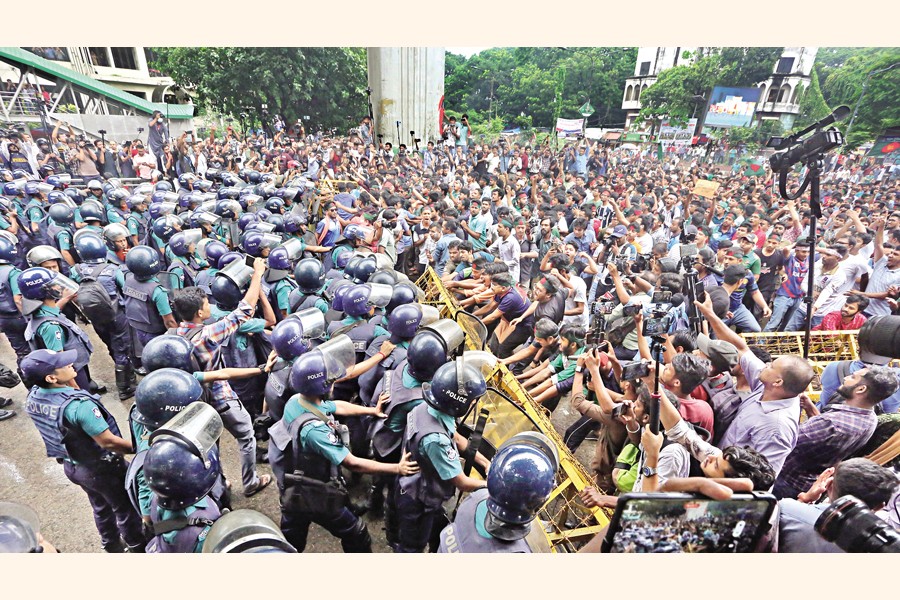Bangladesh calls day of nationwide mourning on Tuesday for victims of quota-reformation violence


The Bangladesh government has decided to call a day of nationwide mourning on Tuesday for those killed in the clashes and violence surrounding the quota reform protests.
A Cabinet meeting led by Prime Minister Sheikh Hasina made the decision on Monday, said Cabinet Secretary Mahbub Hossain, reports bdnews24.com.
Black badges will be worn across the country as part of the nationwide mourning, he said at a briefing.
Prayer services will be held at mosques, temples, churches and pagodas.
“All citizens, whether working in government or private jobs, will be able to take part. However, no decision has been made on whether the national flag will be flown at half-mast.”
Violence sparked around the quota reform movement’s protests on Jul 16. Various media outlets have reported that over 200 people were killed in the clashes over the past week, but Home Minister Asaduzzaman Khan says the government’s count puts the toll at 147.
Students and job seekers revived the quota reform movement after the High Court declared a 2018 circular scrapping the quota system for government jobs was invalid, leading to protests at the start of July. The scope and scale of the protests gradually increased.
The situation changed on Jul 15 when the Chhatra League clashed with quota protesters on the Dhaka University campus. The following day, reports said that six people were killed in clashes in Dhaka, Chattogram, and Rangpur.
In response to the violence, the protesters declared a ‘complete shutdown’ programme on Jul 18. Students from private universities, schools and colleges took to the streets in solidarity with the quota movement that day. Many rumours swirled across the country and attacks were carried out on several state agencies and government property. The death toll began to tick up.
Attackers vandalised and torched the BTV building in Rampura, two metro rail stations, the Setu Bhaban in Banani, the Directorate of Disaster Management in Mohakhali and the Directorate of Health Services. Power substations were attacked too.
The following day, the violence worsened across the country. Eventually the government imposed a curfew and deployed the army. The government announced three days of general holidays in two rounds as the country nearly came to a standstill.
As the law and order situation improved, the curfew was eased and offices and factories reopened. Long-haul buses and launches are running too, but train service is still suspended.


 For all latest news, follow The Financial Express Google News channel.
For all latest news, follow The Financial Express Google News channel.